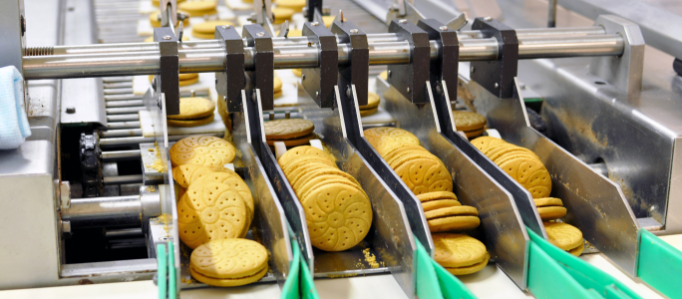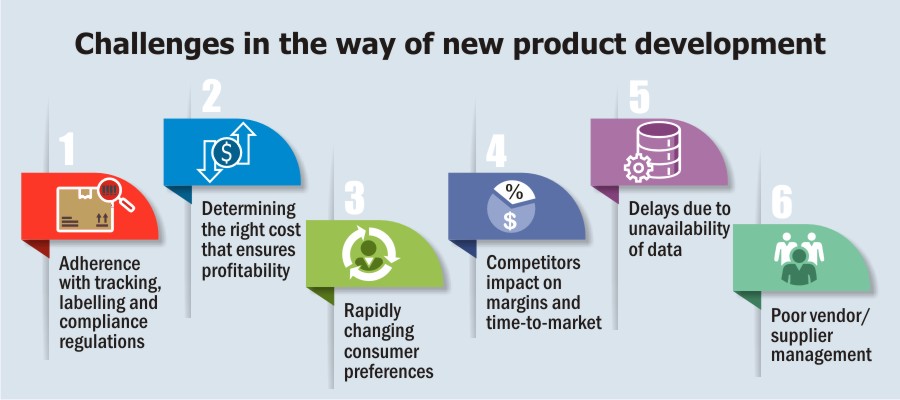
Renowned American Cook & Cookbook author James Beard once said, “There is absolutely no substitute for the best. Good food cannot be made of inferior ingredients masked with high flavor. It is true thrift to use the best ingredients available and to waste nothing.”
His words are the cornerstone of the manufacturing philosophy in the food industry, which involves various stakeholders through different activities such as farming and agriculture, processing, research and development, manufacturing, marketing, distribution, financial services, and regulations.
It is a fact that comes what may, people will have to eat, and in fact, it is this absolute necessity of food that makes the food & beverage manufacturing industry such a dynamic and vast space.
With there being no substitute for good, safe & healthy food, the manufacturers find it necessary to indulge in producing top quality food products that meet all safety & regulatory guidelines.
This further calls for indulging in constant innovation and product development on their part.
How food manufacturers go about product development?
Developing new products in the highly-regulated food manufacturing industry isn’t easy at all. In fact, the process is complicated, costs are huge, risks are high, and success isn’t guaranteed.
It requires thorough knowledge of ingredients, processing techniques, packaging materials, regulatory requirements, and consumer demands and preferences.
Possible reasons behind developing a new product could be an innovation, customer demand, loss of current market or market pressure.
Beginning with idea generation & screening, the process further involves thorough market research (R&D), product specifications, feasibility study, process development, prototype development & testing, and concludes with the product launch.
A lot goes into it, as a team comprising of different experts like food scientists, raw material suppliers, nutritionists, sensory analysts, analytical chemists, microbiologists, packaging specialists, food engineers, and marketing experts, etc., comes together to ensure the new product is a success.
The manufacturers invest a lot in the product concept, formulation, packaging, manufacturing process, and marketing strategies.
The product development process is absolutely essential to stay ahead of the competition in an industry where the failure rate is as high as 90%.
However, food manufacturers find it tough to foster product innovation, reduce time to market, and execute the product successfully.
They face multiple challenges on different fronts

The complex regulatory requirements related to tracking, labeling, and compliance often slow down the product development process.
Determining the right cost that ensures profitability is also a headache for the manufacturers.
Then there are the rapidly changing consumer preferences due to the newfound awareness that calls for streamlining the new product development processes, putting the manufacturers under tremendous pressure to innovate.
Then there are the competitors, who adversely impact the food manufacturers’ margins and time-to-market.
Some other internal/external factors also make the product development process cumbersome, as the manufacturers feel the need to optimize their internal processes, deal with a large amount of data that requires proper management in order to avoid errors and delays during product development and enforce the relationship with the suppliers.
These challenges play a big role in the potential failure of the food products, but fortunately, there are solutions like a food ERP system that help ensure you remain a part of the successful 10%.
How food ERP software eases product development?
The R&D or the laboratory module, along with the recipe module of an ERP for food development eases the process of product development for the food manufacturers and helps them innovate through experimentation simultaneously, without affecting production.
ERP allows them to meet their specific needs with respect to the new product, conduct research on their formulations based on the material properties, develop new formulas with new physical properties, and assess new formula’s impact on production.
It also facilitates the achievement of targeted physical, nutritional or specific characteristics, and specific packaging based on the nature of the product. Here’s what all it can do to ease product development:
A food ERP ensures your new product aligns with the end consumer’s needs. Through its CRM module, it allows taking feedback at the concept stage, so that the prospects can offer their opinion on the concept as well as their suggestions for improvement. The manufacturers can incorporate those changes and increase the chances of the new product’s success.
With its sample management module, an ERP helps to design samples based on customer specifications. It keeps a deep check on its development, communication with customers, versions, documents involved, costs incurred along with a log of approvals/rejections provided by the customers.
A food product development software facilitates the use of production and recipe management data so as to experiment with new recipes and ingredient amounts. With this data, the R&D team can compare current formulas and processes with new combinations to come up with new products or formulas.
Food ERP software’s R&D module offers the manufacturers a way for secure recording of formulas and allows intensive testing on experimental formulas, including quality monitoring and maintaining BOM revisions. This allows food manufacturers to execute secure experimentation by simultaneously keeping the master formula safe.
Another important part of an ERP for product development happens to be the analysis with cost features, which enables costing of the new product. Through its Cost Analysis module, an ERP allows determining the accurate costing of the new product considering all the elements. Its ‘what-if‘ cost analysis feature allows food manufacturers to estimate profitable product cost based on different assumptions.
While developing a new product, it is important for the food manufacturers to take decisions like vendor/supplier selection, which actually influences both product performance and cost. An ERP for product development facilitates making this decision, as it stores historical data about suppliers, materials, certifications, and their expiries, costs, lead-time, product, and part performance, and more, and gives manufacturers real-time access to them, thus helping them identify the most suitable raw material and vendors for the project.
It is important to keep a track of the labor, overheads and production costs while executing the new product development project. Of course, this can’t be done manually. A food manufacturing ERP helps track the operational costs involved in the process from start to finish and provides “one version of the truth,” thus helping the manufacturers figure out the price needed to ensure profitability
A food manufacturing ERP, acting as an ERP for product development, helps food manufacturers meet the regulatory requirements.
They can maintain past records of regulations, and thus allow manufacturers to keep track of all necessary compliance requirements, including the ones related to ingredient usage and labeling requirements.
An effective food ERP can also allow easy updating of legal information in the system, which ensures the process of developing a new product doesn’t get stalled by the regulatory roadblocks.
With all this information available on a single centralized platform, its flow becomes fast.
All the concerned involved are prompted with mail/messages whenever their approval is required speeding the process exponentially as compared to manual transfer of files from one table to another.
Any halts can be identified and resolved immediately. This drastically reduces the time to market, helping you bring products to market before your competitors thus utilizing more of shelf space and customer attention.
Conclusion
A food ERP software is one of the most valuable tools for food manufacturing businesses. It plays a vital role in bringing new products to the market in a timely and cost-effective manner.
One such software is BatchMaster ERP for Food & Beverages. With all its expertise and experience, this software understands the complex challenges faced by food manufacturers, including the challenges involved with new product development, and in turn, gives them a competitive platform to address those challenges.
Get in touch with our food manufacturing experts if you are looking for a food ERP solution that can help you streamline and accelerate the process of product development.




















